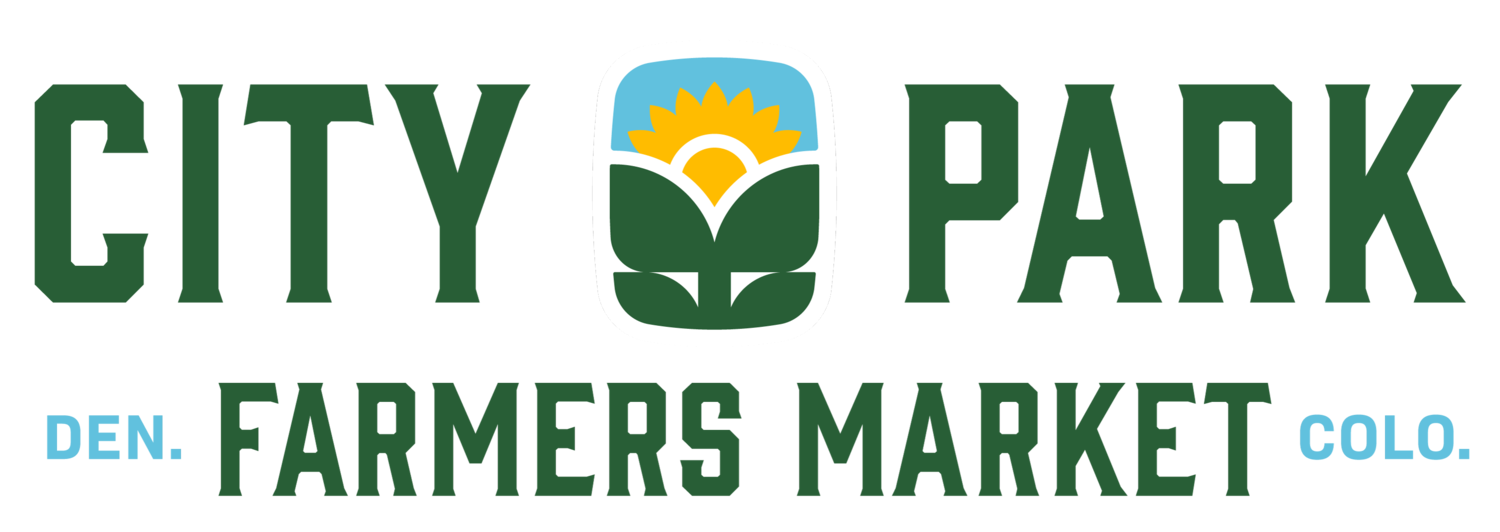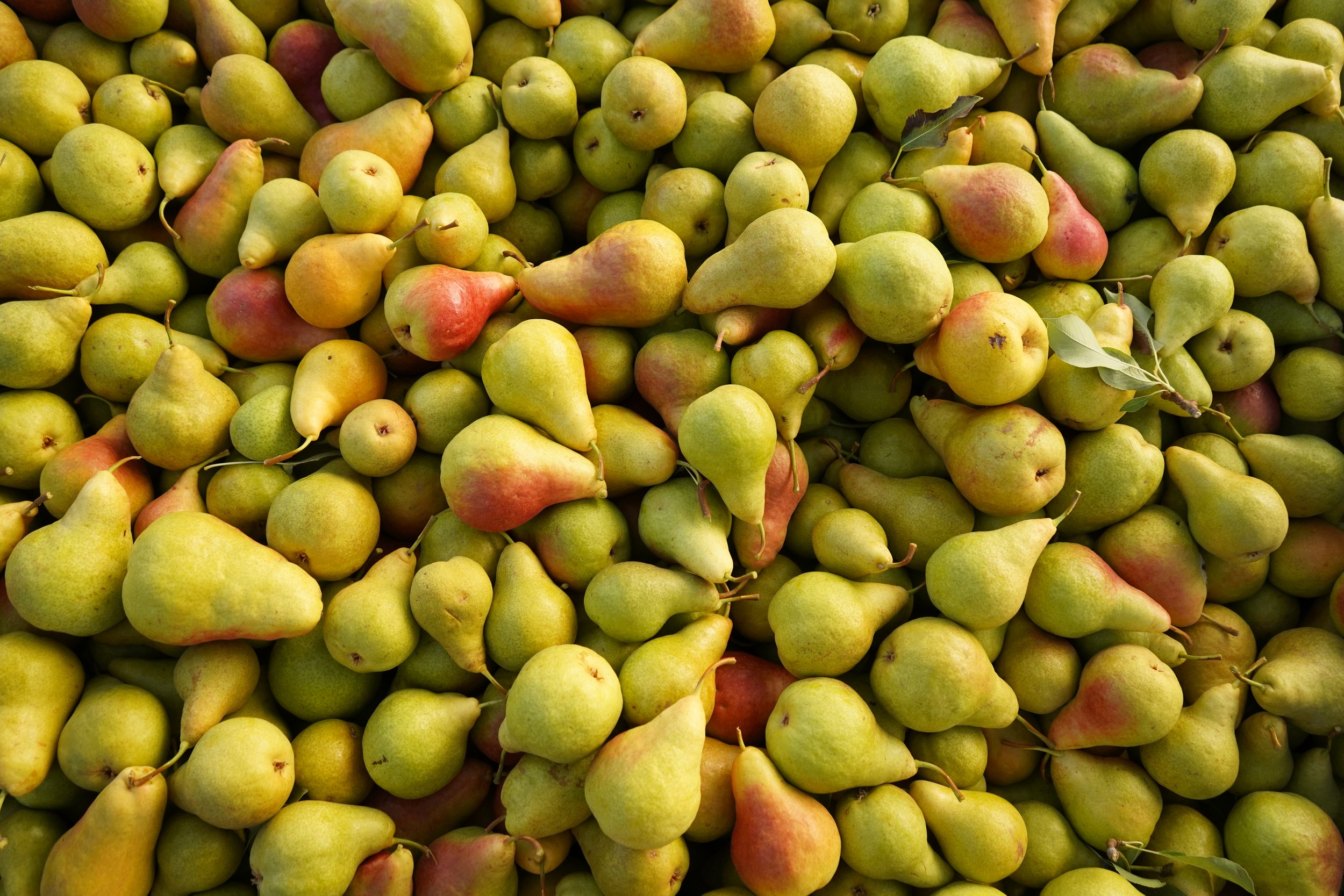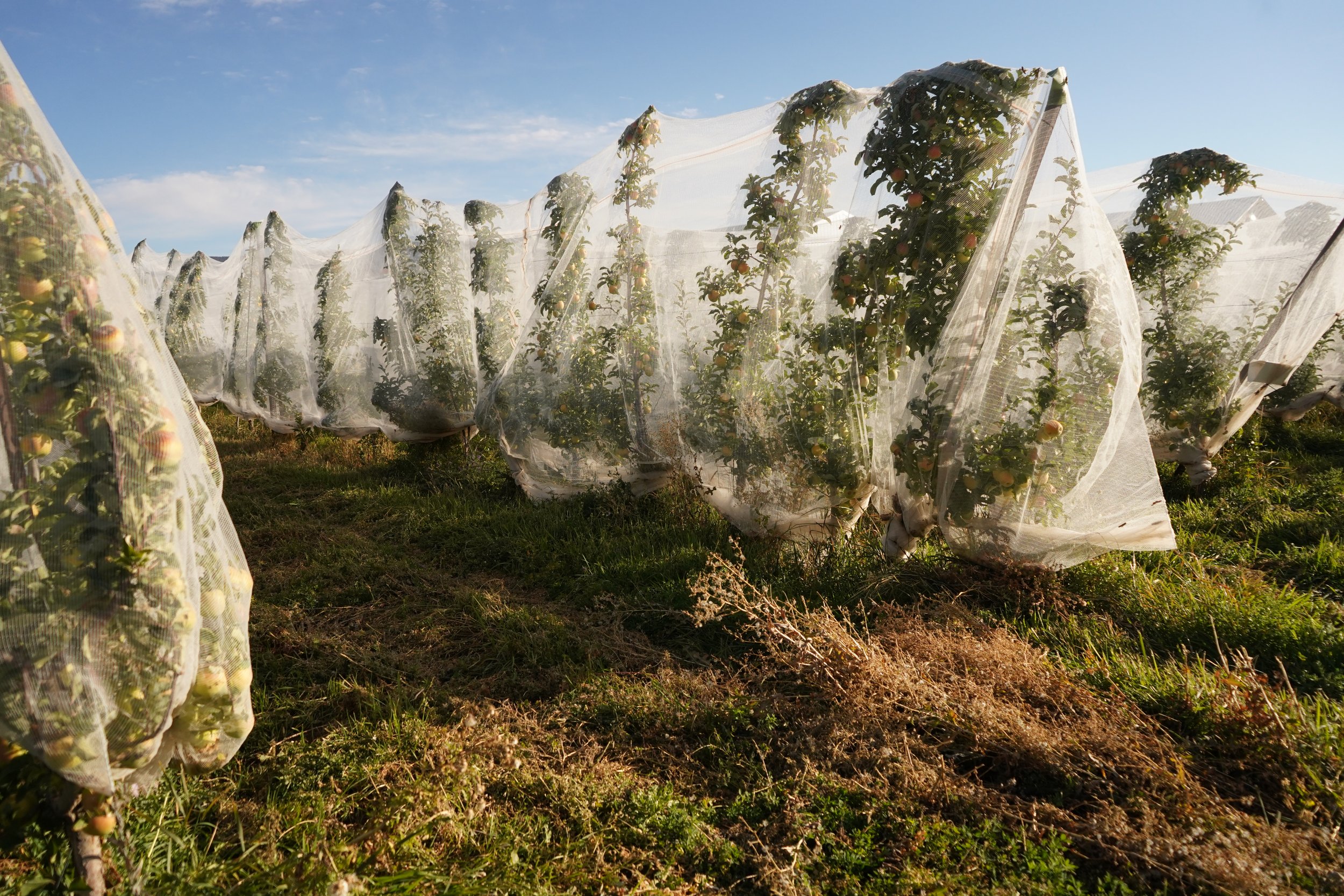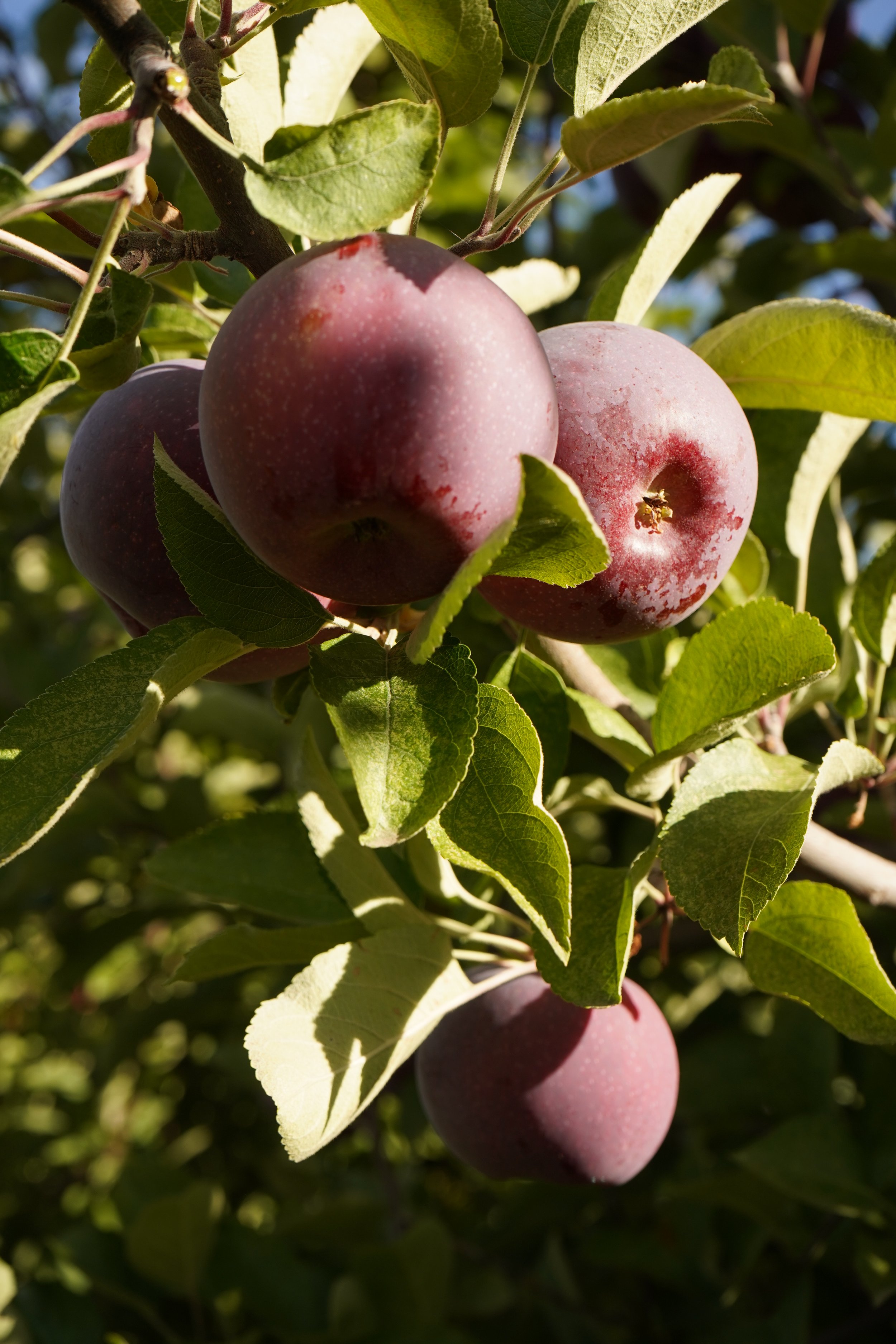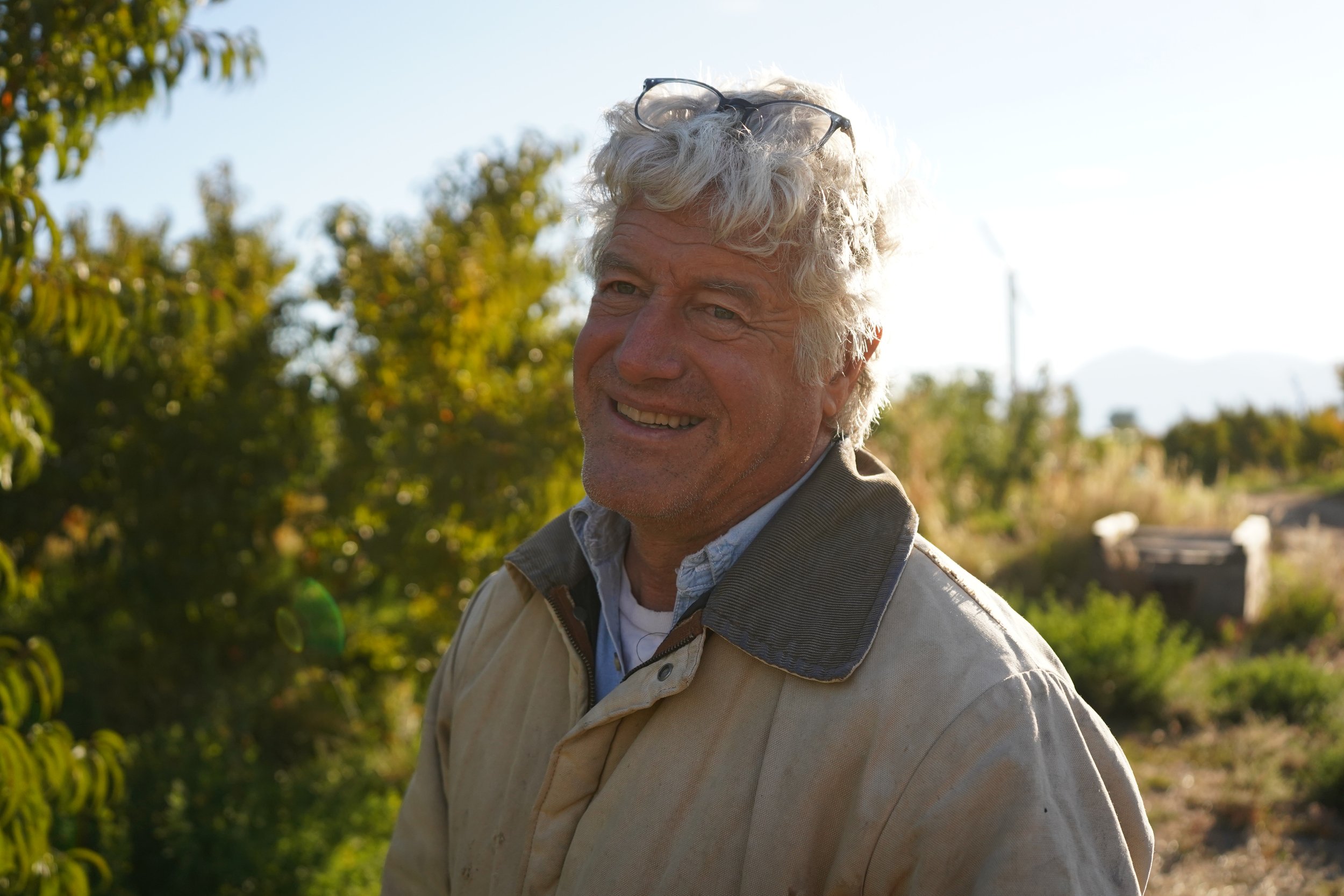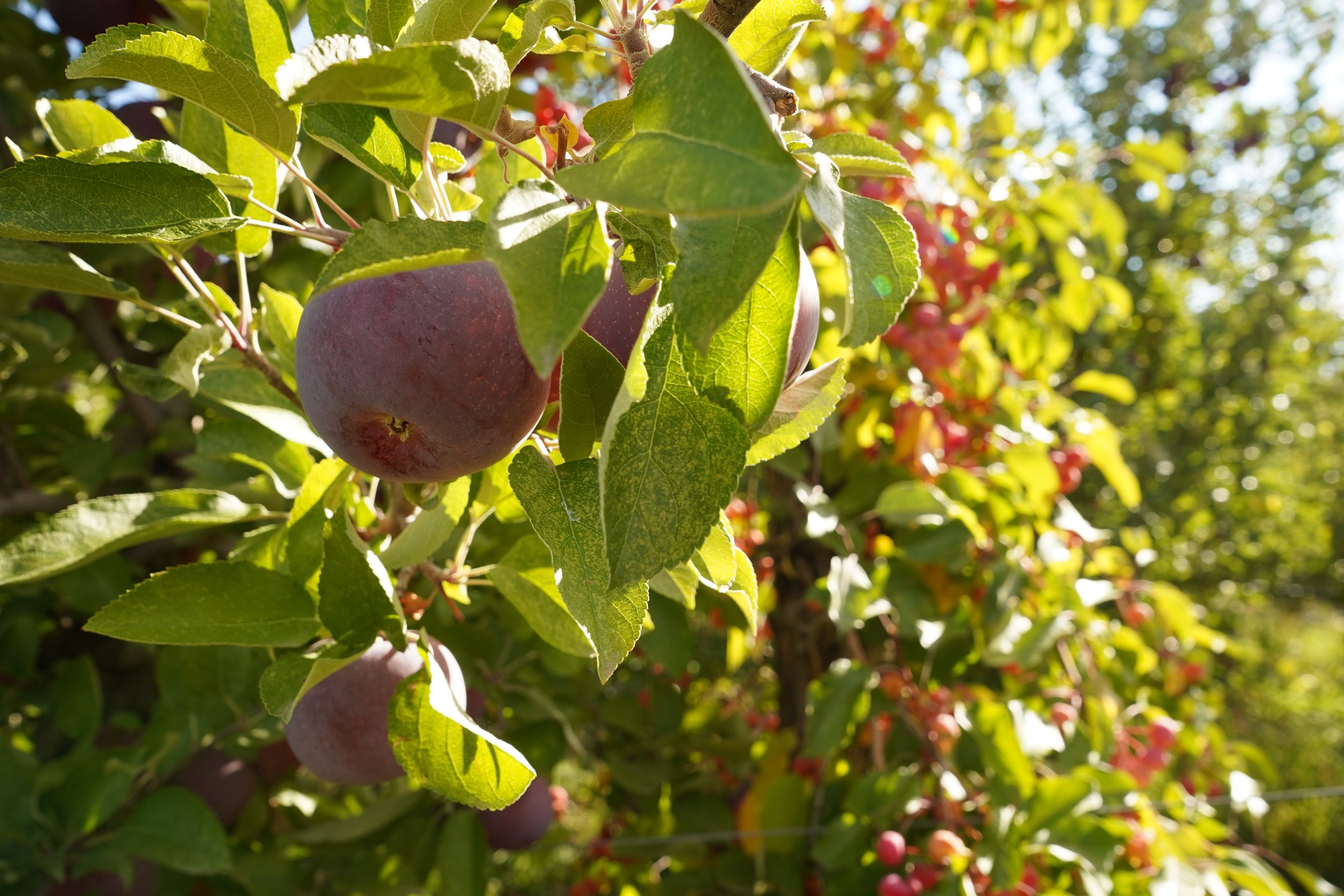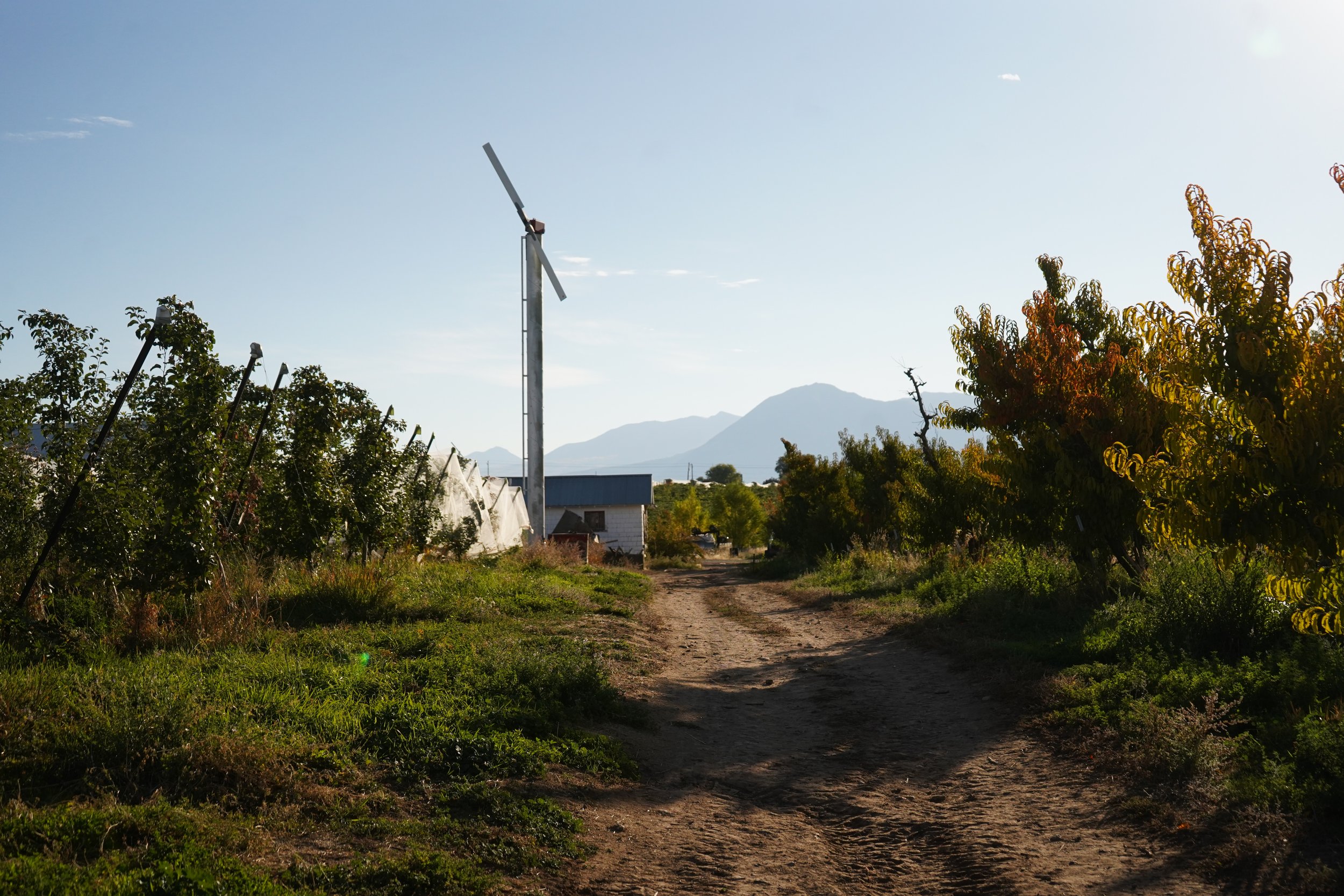Ela Family Farms: Western Slope Day Two
As dawn broke across the Elk Range, I rustled around in my sleeping bag nestled in my rooftop tent. My trusty/rusty ‘99 Tacoma had provided another night of deep sleep after the Topp Fruits tour the day before, despite the howling coyote calls echoing across the quite foothills that surrounded the truck. I wasn’t ready to embrace the crisp fall air quite yet, so I peered over the town of Paonia, excited as always to get some time walking the orchards of Ela Family Farms with the legend himself, Steve Ela.
Steve has been in the market-farming game for a long time, and chances are you’ve seen the Ela Family Farms tents at your local Denver farmers market. They have been a well-known name in Denver when it comes to Western Slope peaches, plums, pears, and of course… apples. And rightfully so. Ela Family Farms is a fourth generation Colorado fruit farm dating back to 1907, and while there’s a lot you could say about the history of the farm, I’ll just direct you to the very informative timeline on their website here. While Ela has been a staple Front Range fruit supplier for literally generations, Steve’s ambitions to be an organic, carbon neutral, healthy soil building, bio-diverse fruit farm has positioned Ela as a leader in farming practices for the state, and even the country. These practices are foundational to who Ela Family Farms is today, and of course… the hard work and intention has paid off with fruit that has a unique depth of flavor. Soil that is dynamic, alive, complex, and nutrient dense tends to grow fruit that follows suit.
After wandering the fruit orchards on their thirty acres of land, starting with plums, peaches, and pears, we moved on to apples, which were at the peak of their harvest. Well, I should say some trees were at peak. Ela grows over thirty varietals of apples (side note - I took a video of Steve trying to remember them all in order of harvest – will post soon), and part of the equation is to have fruit coming into peak harvest at different times all summer so there’s not big lags in production or supply! Different varietals mature at different rates, so you’ll see an ever-changing fruit selection each time you visit a market.
When I asked Steve how his motivations have changed over the years, his answer perfectly aligns with the output, the ethos, of how I perceive Ela. He said that as a kid he was just as happy working on the farm as going to a party with friends – he just loved being around plants. Or as he put it, “there are living being in the perennials.” Though his education in soil science and water conservation that seems to have evolved only in name. “As I get older, I like being able to pay more attention to that – not trying to force things into a mold, but letting mother nature do what she does well.” He adds, “my grandad was one of the first to plant cover crops in orchards, and now we talk about what cover crops to plant and what purpose they serve – soil sequestration, fertility for trees… is it solid biota?” You can tell Steve amps up when soil comes into play (those are the farmers you want to buy your produce from btw), and he adds “Soil is the next frontier, it’s like space – we just don’t know what’s fully going on – it’s a wildly dynamic mystery.”
Steve has come to realize that people are also a major part of the ecosystem. “More recently I’ve noticed that the consumers are active voters in shaping the ecosystem as well – what they say and what they buy changes what we plant and what we bring to market. My farm looks different because of my customers. And three years ago, when we had the adopt-a-tree program, we couldn’t run a CSA because we didn’t have enough fruit from the freeze. Monetarily it was wildly helpful of course, but more so it was psychologically huge for us. We thought we would sell 40-50 trees, but people ended up adopting like 800 trees for that year. That’s an ecosystem. It’s powerful. It’s not us and them, it’s US.”
As we wrapped up our tour, I wanted to know what Steve is most proud of with Ela, and surprisingly one of the things he emphasized was survival. Farming is not easy, and that’s coming from a fourth-generation farmer with a degree in soil science who serves on the Colorado State Agricultural Commission. It’s hard work, it’s unpredictable, and it’s passionate. Besides survival, Steve also noted that he is simply proud to get good fruit to people. “When they say, ‘this is way different from anything I’ve had before,’ It’s motivating and inspiring. We eat multiple times a day and it should be pleasurable and wonderful!”
For more information about Ela Family Farms visit their website (elafamilyfarms.com) and be sure to give them a follow on social media @elafamilyfarms. For the best experience though, visit a farmers market and buy lots of fruit from them. You won’t regret it.
